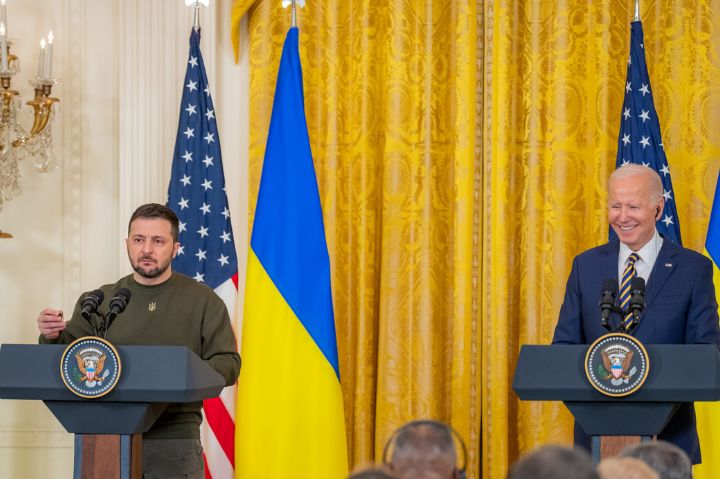As Ukraine continues to battle Russia’s brutal invasion, one thing is clear: the United States holds the key to ending this devastating war. While Ukrainian President Volodymyr Zelensky has tirelessly pushed his victory plan to the West, the Biden administration has shown little enthusiasm for taking the reins. This reluctance, however, risks prolonging the war’s destruction, with Ukraine’s territorial integrity and civilian lives hanging in the balance.
The war is not just about Ukraine’s survival. It’s a larger geopolitical struggle between Russia and the West over the future of European security. Russian President Vladimir Putin’s ambitions go beyond Ukrainian soil; he wants to weaken NATO and challenge the Western-led international order. From Moscow’s viewpoint, the U.S. is the primary player in this conflict, and Washington’s involvement is critical to resolving not only the war in Ukraine but also the broader security concerns in Europe.
Why Washington’s Role Is Crucial
Putin’s goal has always been clear: to diminish NATO’s influence and assert Russia as a great power on the global stage. While the Kremlin may be wrong about U.S. intentions, it is correct in viewing the United States as the essential actor in any meaningful resolution. As the guarantor of Europe’s security, Washington has the power to shift the security balance on the continent and either accommodate or resist Russia’s ambitions.
The U.S. cannot remain on the sidelines. Direct U.S.-Russia negotiations are essential for bringing an end to the war. However, they must be part of a broader diplomatic effort involving Ukraine, European allies, and possibly even non-European powers like China, which could act as guarantors of any final settlement.
A War of Attrition: What’s at Stake?
The current U.S. strategy of supporting Ukraine militarily while avoiding direct negotiations with Russia has its limits. While Washington is helping Ukraine strengthen its position on the battlefield, it is also prolonging the war. Each day of this conflict brings more loss of life, property, and potentially territory for Ukraine.
To break the stalemate, the U.S. needs to redefine what victory looks like. Rather than an all-or-nothing approach that centers on Ukraine reclaiming every inch of its territory, Washington should focus on ensuring Ukraine remains an independent, sovereign state firmly integrated into the Euro-Atlantic community. This may require accepting that some territory will remain under Russian control, but preserving Ukrainian sovereignty is the ultimate strategic win that prevents Russia from fully subjugating the country.
What’s Next for U.S. Leadership?
Given the stakes, America’s role is more important than ever. Without U.S. willingness to lead and engage in direct negotiations with Russia, the war will grind on, and Ukraine will continue to suffer. The Biden administration has hesitated to bestow any legitimacy on Russia by engaging directly with Putin, fearing it could send the wrong message about rewarding aggression. But without these talks, the cost of the war will only rise.
It’s time for the U.S. to step up and redefine success at the negotiating table. A partial victory—one that preserves a free Ukraine, even at the cost of lost land—is far better than a prolonged war with devastating consequences for both Ukraine and global stability. While the current administration may not have the political capital to undertake this shift, it is a task the next U.S. leadership must prioritize.
In the end, America’s leadership is the only path to ending the war and securing a lasting, if imperfect, peace.












